On this page you can find details of books by founding members of CPCS. Together, these set out the central themes and ideas that drive the work of CPCS and which we aim to develop further.
Our book Parenting Culture Studies (2014/2023) brings together many of our ideas in one place, and we are pleased indeed to announce that a 2nd Edition of Parenting Culture Studies has just been published – please see further info below.
Background
Some books detailed below precede the formation of CPCS in 2011, and discuss research that formed part of the idea for the Centre:
- Paranoid Parenting: Why ignoring the experts may be best for your child, 2008
- Licensed to Hug, 2008
- Abortion, Motherhood and Mental Health: Medicalizing reproduction in the United States and Great Britain, 2004
Others detail research that has been done more recently on specific areas:
- Couples’ Transitions to Parenthood: Gender, Intimacy and Equality
- Stop Mugging Grandma: The ‘Generation Wars’ and Why Boomer Blaming Won’t Solve Anything, 2019
- Neuroparenting: The Expert Invasion of Family Life, 2016
- What’s Happened to The University? 2016
- Baby Boomers and Generational Conflict, 2015
- Militant Lactivism? Attachment Parenting and Intensive Motherhood in the UK and France, 2013
Also on this page:
- The Sociology of Generations: New directions and challenges, 2016
- Parenting in Global Perspective: Negotiating ideologies of kinship, self and politics, 2013
- Standing Up to Supernanny, 2009
- Wasted: Why Education isn’t Educating, 2009
Parenting Culture Studies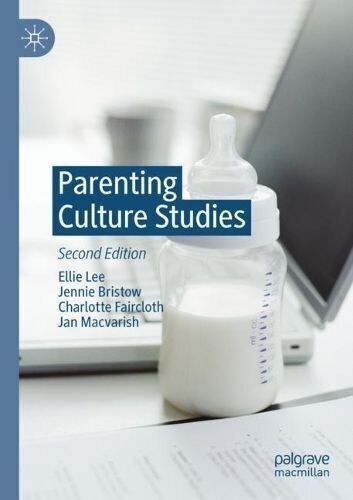
Updated Second Edition now out
Why do we live at a time when the minutiae of how parents raise their children – how they feed them, talk to them, play with them or discipline them – have become routine sources of public debate and policy making? Why are there now so-called ‘parenting experts’, and social movements like Attachment Parenting, telling us that ‘science says’ what parents do is the cause of and solution to social problems?
Parenting Culture Studies provides in-depth answers to these features of contemporary social life drawing on a wide range of sources from sociology, history, anthropology, psychology and policy studies to do so, covering developments in both Europe and North America. Key chapters cover the ‘intensification of parenting’, the rise of the ‘parenting expert’, the politicizing of parent-child relationships, and the weakening of bonds between generations.
Five essays detail contemporary examples of obsessions with parenting, discussing drinking and pregnancy, attachment theory, neuroscience and family policy, fathering, and ‘helicopter parenting’. The Introduction situates parental determinism in the wider context of risk consciousness and the demise of social confidence about how to approach the future. Comprehensive in scope and accessibly written, this book will be an indispensable resource for students, researchers, policy-makers and parents seeking a deeper understanding of the debates surrounding parenting and society today.
Now in its second edition, the book also features a new third part discussing parents dealing with risk assessment, school closures, contradictory care arrangements, and vaccine hesitancy during the COVID-19 pandemic.
Order here from the publisher here or on Amazon US to purchase in dollars
Read a review of the first edition by Nancy McDermott here. Reviews in praise of the Second Edition:
“By retracing the way in which maternal and parental work is supervised by a whole series of experts, this quartet of researchers lifts the veil on what parenting means today. The first edition, published a decade ago, was already a masterpiece and influenced the work of many. This updated edition is essential for anyone interested in the politicization of parenting issues.” (Claude Martin, National Centre for Scientific Research, France)
“Future historians will wonder why more researchers were not documenting and refuting the idea that today’s kids are more fragile and helpless than any before them, and ditto, their parents. These authors peer behind the endless parenting advice, warnings and ‘best practices’ to show us what is really going on when it comes to childhood, love, humanity, and the family.” (Lenore Skenazy, President, Let Grow, USA, and Author of Free-Range Kids)
“Parenting Culture Studies is doing some important critical work, in an updated second edition that reviews developments in 21st century parenting culture studies, and now includes a consideration of what this ever-intensifying culture meant for parenting during the pandemic. The book provides a reality check in field dominated by expert edicts that are accompanied by a ramping up of monitoring and surveillance of parents, bolstered by a fixation on what might just possibly happen. Parenting Culture Studies is both accessible and sophisticated—a book that I can confidently recommend to undergraduate students and those new to parenting studies, as well as of interest to those familiar with the field.” (Ros Edwards, University of Southampton, UK)
Further reviews are online here
100 years of Identity Crisis: Culture War over socialisation
Couples’ Transitions to Parenthood: Gender, Intimacy and Equality
C. Faircloth, 2021, Palgrave
Charlotte’s book Couples’ Transitions to Parenthood: Gender, Intimacy and Equality has also recently been published by Palgrave.
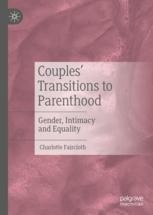 This book argues that new parents are caught in an uncomfortable crossfire between two competing discourses: those around ideal relationships and those around ideal parenting. The author suggests that parents are pressured to be equal partners while also being asked to parent their children intensively, in ways markedly more demanding of mothers. Reconciling these ideals has the potential to create resentment and disappointment. Drawing on research with couples in London as they became parents, the book points to the social pressures at play in raising the next generation at material, physiological and cultural levels. Chapters explore these levels through concrete practices: birth, feeding and sleeping—three of the most highly moralised areas of contemporary parenting culture.
This book argues that new parents are caught in an uncomfortable crossfire between two competing discourses: those around ideal relationships and those around ideal parenting. The author suggests that parents are pressured to be equal partners while also being asked to parent their children intensively, in ways markedly more demanding of mothers. Reconciling these ideals has the potential to create resentment and disappointment. Drawing on research with couples in London as they became parents, the book points to the social pressures at play in raising the next generation at material, physiological and cultural levels. Chapters explore these levels through concrete practices: birth, feeding and sleeping—three of the most highly moralised areas of contemporary parenting culture.
Stop Mugging Grandma: The ‘Generation Wars’ and Why Boomer Blaming Won’t Solve Anything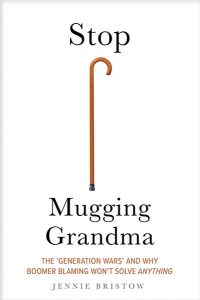
Yale University Press, 2019
Millennials have been incited to regard their parents’ generation as entitled and selfish, and to blame the Baby Boomers of the Sixties for the cultural and economic problems of today. But is it true that young people have been victimized by their elders?
In this book, Jennie Bristow looks at generational labels and the groups of people they apply to. Bristow argues that the prominence and popularity of terms like ‘Baby Boomer’, ‘Millennial’ and ‘snowflake’ in mainstream media operates as a smoke screen – directing attention away from important issues such as housing, education, pensions, and employment. Bristow systematically disputes the myths that surround the ‘generational war’, exposing it to be a tool by which the political and social elite can avoid public scrutiny.
- What reviewers are saying about Stop Mugging Grandma:
“A wide-ranging and thoughtful look at contemporary society … Eminently readable without sacrificing sophistication, many of Bristow’s views will be controversial and likely to spark further debate.” – Doug Owram, author of Born at the Right Time: A History of the Baby Boom Generation.
“Pitching young people against the old is unhelpful to us all, yet policymakers and journalists are increasingly looking to the blame game. Bristow expertly argues that the inter-generational contract is at risk — young and old must come together to tackle the issues of this generation and the next.” – David Sinclair, Director of the International Longevity Centre UK.
“A searing and spot on critique of the political hijacking of the generation debate.” – Steven Roberts, Associate Professor of Sociology at Monash University.
Feeding Children Inside and Outside the Home: Critical perspectives
V. Harman, B. Cappellini and C. Faircloth (Eds) 2018, Routledge 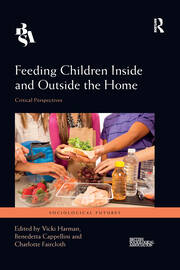
This cross-disciplinary volume brings together diverse perspectives on children’s food occasions inside and outside of the home across different geographical locations. By unpacking mundane food occasions – from school dinners to domestic meals and from breakfast to snacks – Feeding Children Inside and Outside the Home shows the role of food in the everyday lives of children and adults around them. Investigating food occasions at home, schools and in nurseries during weekdays and holidays, this book reveals how children, mothers, fathers, teachers and other adults involved in feeding children, understand, make sense of and navigate ideological discourses of parenting, health imperatives and policy interventions.
The Sociology of Generations: New directions and challenges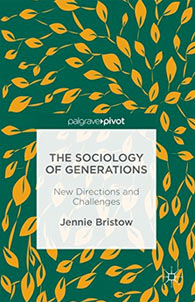
J. Bristow, 2016, Palgrave Macmillan
This book suggests that the enduring problem of generations remains that of knowledge: how society conceptualises the relationship between past, present and future, and the ways in which this is transmitted by adults to the young. Reflecting on Mannheim’s seminal essay ‘The Problem of Generations’, Bristow explores why generations have become a focus for academic interest and policy developments today. She argues that developments in education, teaching and parenting culture seek to resolve tensions of our present-day risk society through imposing an artificial distance between the generations.
What reviewers are saying about The Sociology of Generations:
“An engagingly written and impressively resourced book which brings together historical, literary and ethnographic material on formal education and policies on gender, parenting and the ‘safeguarding’ of children – topics rarely considered together. The author holds her novel and ambitious thesis together by locating it within Karl Mannheim’s renowned but neglected theory of generations. She brings out clearly how it was, for him, an example of the potential of the sociology of knowledge.” – Michael Young, UCL Institute of Education, UK
“Popular usage of the term “generation” tends to be characterised by opacity and imprecision, and the sociology of generations is hardly less murky and contested. The same can be said of public discussion and academic consideration of problems and issues around education, teaching, child protection and safeguarding, parenting and the family, living with uncertainty and risk, gender relationships and reproduction, and bureaucratic and governmental incursions into the personal and private sphere. This short book bravely takes on these issues and more, through a discussion of the idea and reality of generations situated firmly in the sociology of knowledge … Building on refreshingly eclectic sources and ideas, Jennie Bristow offers an engaging discussion of some fundamental issues.” – Heather Piper, Honorary Fellow, University of Edinburgh, UK
Buy from Amazon UK.
Neuroparenting: The Expert Invasion of Family Life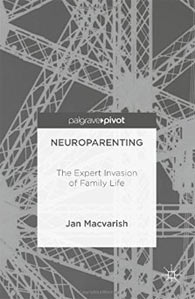
J. Macvarish, 2016, Palgrave Pivot
Neuroparenting: The Expert Invasion of Family Life traces the growing influence of ‘neuroparenting’ in British policy and politics. Neuroparenting advocates claim that all parents require training, especially in how their baby’s brain develops. Taking issue with the claims that ‘the first years last forever’ and that infancy is a ‘critical period’ during which parents must strive ever harder to ‘stimulate’ their baby’s brain just to achieve normal development, the author offers a trenchant and incisive case against the experts who claim to know best and in favour of the privacy, intimacy and autonomy which makes family life worth living.
The book will be of interest to students and scholars of Sociology, Family and Intimate Life, Cultural Studies, Neuroscience, Social Policy and Child Development, as well as individuals with an interest in family policy-making.
“This book shows that there are more problems with brain-based parenting than bad neuroscience. Jan Macvarish, analyzing the issue from a broad historico-cultural perspective, shows how the neuroparenting movement inhibits sound policy formation, impedes social justice, and threatens family privacy and parents’ rights. This is a highly significant contribution to the early childhood policy literature.”
John T. Bruer, James S. McDonnell Foundation, USA, author of “The Myth of the First Three Years”
Buy from Amazon UK
What’s Happened to The University?
F. Furedi, 2016, Routledge
The radical transformation that universities are undergoing today is no less far-reaching than the upheavals that it experienced in the 1960s. However today, when almost 50 per cent of young people participate in higher education, what occurs in universities matters directly to the whole of society.
On both sides of the Atlantic curious and disturbing events on campuses has become a matter of concern not just for academics but also for the general public. What is one to make of the growing trend of banning speakers? What’s the meaning of trigger warnings, cultural appropriation, micro-aggression or safe spaces? And why are some students going around arguing that academic freedom is no big deal?
What’s Happened To The University? offers an answer to the questions of why campus culture is undergoing such a dramatic transformation and why the term moral quarantine refers to the infantilising project of insulating students from offence and a variety of moral harms.
Buy from Amazon UK.
Baby Boomers and Generational Conflict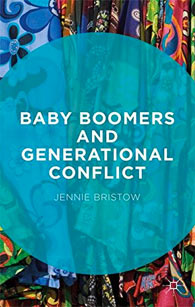
J. Bristow, 2015, Palgrave Macmillan
The dominant cultural script for Baby Boomers is that they have ‘had it all’ – the benefits of a booming economy, the welfare state, and personal freedoms – thereby depriving younger generations of the opportunity to create a life for themselves. Bristow provides a critical account of this discourse by locating the problematisation of the Baby Boomers within a reductive ‘demographic consciousness’, and an ongoing ambivalence about the legacy of the Sixties.
At the heart of generational conflict is the mediation between past, present, and future: where society is preserved and made anew by the interaction between emerging adults and the existing cultural heritage. However, this process of cultural renewal is situated within people, who also exist within intimate relationships. This book critiques the troubling consequences of ‘Boomer blaming’ for the construction of knowledge, the focus of social policy, and the experience of generational contact.
What reviewers are saying about Baby Boomers and Generational Conflict:
“Like the fabled blind men trying to grasp the nature of an elephant, commentators on both sides of the Atlantic have struggled to understand the significance of the baby boomers, at different times offering very different, sometimes contradictory interpretations. By telling this fascinating story, Jennie Bristow offers a model for a symbolic demography that critically explores how and why we assign meanings to generations.” – Joel Best, University of Delaware, USA
“Scan the cultural and political landscape today and it’s hard not to conclude that Western society is experiencing a pronounced blurring of generational standards. The current furore over the ‘Baby Boomer generation’ only adds to this perception. Jennie Bristow’s new book brings much needed clarity to all this generational confusion, and does so with no small amount of insight and flair. Required reading for social scientists looking for a considered introduction to ‘generationalism’, or anyone heading for retirement who wants to avoid a future of nonsensical stigmatisation.” – Professor Keith Hayward, University of Kent, UK.
Parenting in Global Perspective: Negotiating ideologies of kinship, self and politics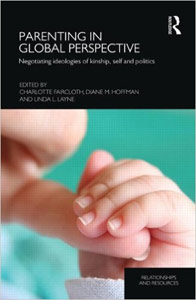
C. Faircloth, D. Hoffman and L. Layne (Eds), 2013, Routledge, London
Drawing on both sociological and anthropological perspectives, this volume explores cross-national trends and everyday experiences of ‘parenting’.
Parenting in Global Perspective examines the significance of ‘parenting’ as a subject of professional expertise, and activity in which adults are increasingly expected to be emotionally absorbed and become personally fulfilled. By focusing the significance of parenting as a form of relationship and as mediated by family relationships across time and space, the book explores the points of accommodation and points of tension between parenting as defined by professionals, and those experienced by parents themselves. Specific themes include:
- the ways in which the moral context for parenting is negotiated and sustained
- the structural constraints to ‘good’ parenting (particularly in cases of immigration or reproductive technologies)
- the relationship between intimate family life and broader cultural trends, parenting culture, policy making and nationhood
- parenting and/as adult ‘identity-work’.
Including contributions on parenting from a range of ethnographic locales – from Europe, Canada and the US, to non-Euro-American settings such as Turkey, Chile and Brazil, this volume presents a uniquely critical and international perspective, which positions parenting as a global ideology that intersects in a variety of ways with the political, social, cultural, and economic positions of parents and families.
Buy from Amazon UK
Militant Lactivism? Attachment Parenting and Intensive Motherhood in the UK and France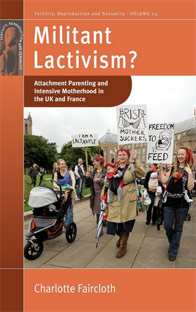
C. Faircloth, 2013, Berghahn Books
Following networks of mothers in London and Paris, the author profiles the narratives of women who breastfeed their children to full term, typically a period of several years, as part of an “attachment parenting” philosophy. These mothers talk about their decision to continue breastfeeding as the “natural thing to do”: “evolutionarily appropriate,” “scientifically best,” and “what feels right in their hearts.” Through a theoretical focus on knowledge claims and accountability, the author frames these accounts within a wider context of “intensive parenting,” arguing that parenting practices – infant feeding in particular – have become a highly moralized affair for mothers, practices which they feel are a critical aspect of their “identity work.” The book investigates why, how, and with what implications some of these mothers describe themselves as “militant lactivists” as well as reflects on wider parenting culture in the UK and France. Discussing gender, feminism, and activism, this study contributes to kinship and family studies by exploring how relatedness is enacted in conjunction to constructions of the self.
Buy from Amazon UK
Standing Up to Supernanny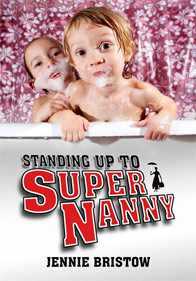
J. Bristow, 2009, Imprint Academic
Parenthood, we are told, requires a massive adjustment to our lives, emotions, and relationships, and we have to be taught how to deal with that. But can it really be so bad that we need constant counselling and parenting classes? It is a myth that today’s parents are hopeless and lazy: in many ways, we have become too diligent, too hopeful of great outcomes and clear rewards, to the point where we lose ourselves in trying to provide some kind of professional service to our children. The current obsession with perfect parenting increases our insecurity and distrust of each other, and diminishes our authority over our kids. This book is about asking: Why have we invited Supernanny into our living rooms – and how can we kick her out?
Buy from Amazon UK
Wasted: Why Education isn’t Educating
F. Furedi, 2009, Continuum Press
The valuation of education as something that is important in its own right is the precondition for it to flourish. One of the principal characteristics of education is its lack of interest in an ulterior purpose. That does not mean that it is uninterested in developments affecting children and society: it means that it regards the transmission of cultural and intellectual achievements of humanity to children as its defining mission. Once society is able to affirm an education system that values itself and the acquisition of knowledge, policymakers and the public can begin to envisage the practical steps required to go forward.
Buy from Amazon UK.
Licensed to Hug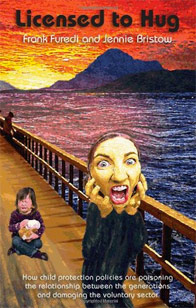
F. Furedi and J. Bristow, 2008, Civitas
This book argues that the dramatic escalation of child protection measures has succeeded in poisoning the relationship between the generations, creating an atmosphere of suspicion that actually increases the risks to children.
Children need to have contact with a range of adult members of the community for their education and socialisation, but as Frank Furedi and Jennie Bristow argue, ‘this form of collaboration, which has traditionally underpinned intergenerational relationships, is now threatened by a regime that insists that adult/child encounters must be mediated through a security check’.
In the UK, the Safeguarding Vulnerable Groups Act 2006 requires that, from October 2009, 11.3million people – over one quarter of the adult population of England – must have their criminal records checked in order to work, even as a volunteer.
Instead of creating an atmosphere of fear and suspicion, Licensed to Hug suggests that we need to ‘halt the juggernaut of regulation’ and, instead, behave as if the majority of adults have no predatory attitudes towards children but, on the contrary, can be relied on to help them.
Buy from Amazon UK
Paranoid Parenting: Why ignoring the experts may be best for your child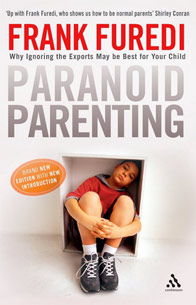
F. Furedi, 2008, Continuum Press
Ever since Frank Furedi has drawn attention to the issue of ‘paranoid parenting’ this problem has gained widespread recognition from mothers and fathers and policy makers. This new edition argues that if anything – in recent years parenting has become more paranoid.
Paranoid Parenting is an important book that shows how parental fears have been stoked and families harmed. It ought to be read by every sensible individual interested in regaining a sane viewpoint that advances children’s well being. If you want to understand why adults act like children and children act like adults, in short if you want to understand why raising children today is harder than ever before, read this book.
Every day there is a warning about your children. Everything is dangerous; cot, babysitters, school, supermarket and park. We are told that children’s health safety and welfare and constantly at risk. Based on sociological research as well as dozens of interviews, this book will bolster your confidence in your own judgments and enable you to bring up self-assured, imaginative, capable children.
Buy from Amazon UK
Abortion, Motherhood and Mental Health: Medicalizing reproduction in the United States and Great Britain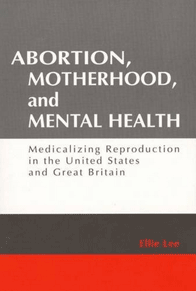
E. Lee, 2004, Aldine de Gruyter, New York
Centering on the claim that abortion can result in Post Abortion Syndrome, the author examines the ‘medicalisation’ of the abortion problem on both sides of the Atlantic. Lee points to the contrast in legal and medical dimensions of the abortion issue that make for some important differences, but argues that in both the United States and Britain, the PAS claim in fact constitutes an example to the limits of medicalisation. She contends that examination of contests over PAS point not so much to demedicalisation as to the construction of its alternative – motherhood – as a psychological ordeal. Centrally, Lee makes the case for looking to the social dimensions of mental health problems to account for and understand debates about what makes women ill.
Buy from Amazon UK

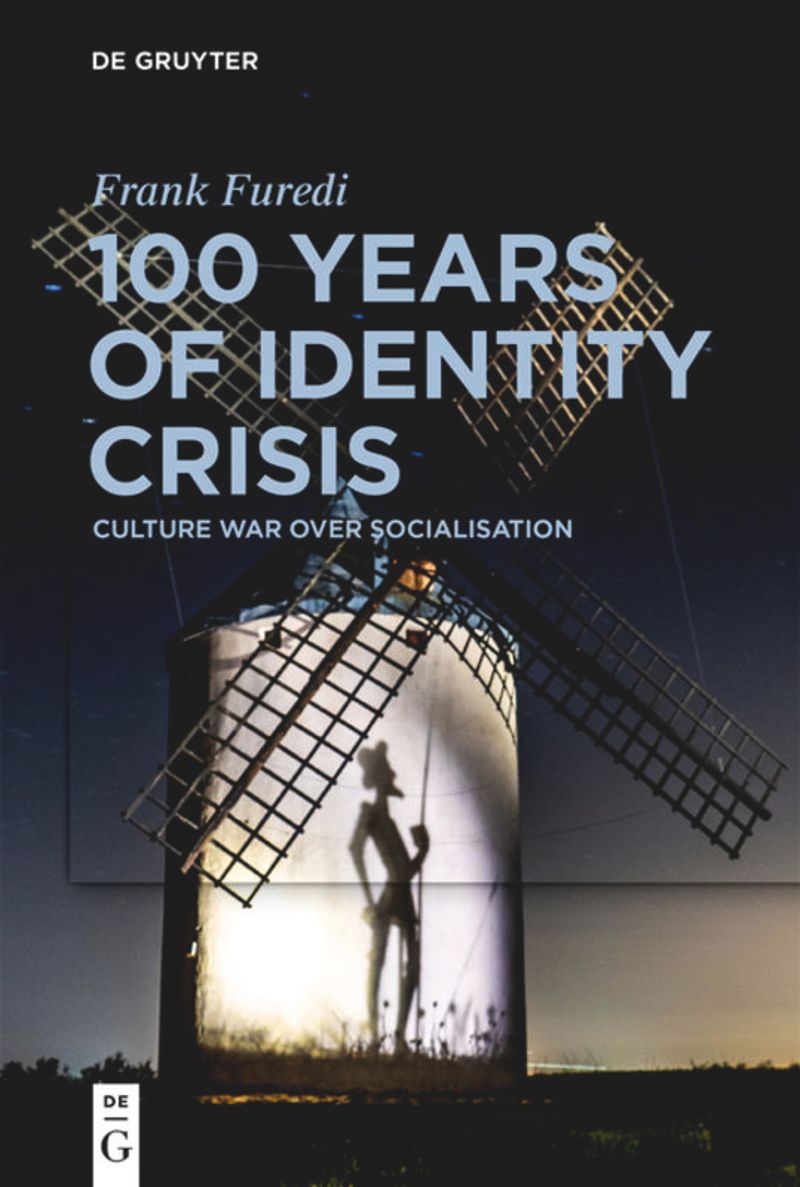
Pingback: New book puts spotlight on notion of ‘good parenting’ as panacea for social problems | CHSS news
Pingback: Successful start for parenting research centre | CHSS news
Pingback: Successful start for parenting research centre | Kent Health News and Events